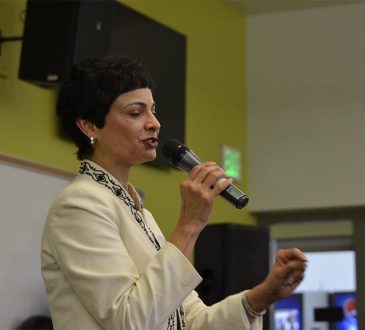Lessons from the Pandemic: Step Away from Outsourcing and Embrace Local Talent

Over 40 million people have filed for unemployment since the coronavirus pandemic hit the United States. Last month we saw unemployment rates rivaling that of the Great Depression. The workforce is radically displaced, and we need to shift the workforce away from outsourcing and towards utilizing untapped talent from local communities.
While countries around the world need to work together to rebuild the global economy, addressing the economic unrest in their own backyards should take precedent. We’ve already seen the president further restrict foreign workers from coming to the county in hopes of protecting American workers. While the world pre-pandemic was focused on globalization, the post-pandemic world will practice globalization with caution.
Countries that the U.S. typically rely on, like India and China, are experiencing extreme supply chain disruptions of their own and can no longer offer their services at pre-pandemic levels, and the U.S. workforce needs to be prepared to make up the difference.
There is a host of untapped talent in our own backyards who, with the correct training and guidance, are more than capable of filling the gap. Besides the economic benefits of Americans reentering the workforce, local talent is typically easier to mobilize for training and educational purposes when any sort of disruption occurs.
Recent events, like Amazon’s struggles to keep up with recent demands and disruptions in the meatpacking industry, have shown the dire need for talent trained to carry on essential tasks while allowing people to maintain social distancing. How can we ensure that we’re preparing the U.S. workforce for the new influx of tech positions to improve employment rates and maintain productivity?
As parts of the country are slowly starting to reopen, we need to tap into local talent and rapidly train them for the new kinds of roles that this pandemic and automation will create. It’s imperative that we give the U.S. workforce the tools to adapt to these new roles before the second wave of the virus, or some other disruption, hits.
By partnering with a workforce development organization, companies can quickly and efficiently expand their workforce with talent trained in in-demand skills for their industry. While in-person training programs have been disrupted due to the pandemic, workforce development organizations across the country have risen to the challenge to quickly move training offerings online to support immediate and long-term hiring needs.
At Workforce Opportunity Services, a nonprofit I founded, we’ve trained and placed veterans and people from underserved communities in vacant tech jobs and connected them with employment opportunities for years with great success. One of the key components of our success is the mentorship our students receive. While most companies have some sort of in-house mentorship, an outside voice can be critical.
That’s why we’re now offering our Client Service Manager (CSM) model and employee coaching & development service to any company that can benefit from it, not just our existing partners, to help navigate the changing relationships between employees and employers caused by remote working. Through our work we’ve found that populations that historically face employment issues can be successful if they have someone they can feel open with to express their concerns or ask questions.
Long before the COVID-19 pandemic, every industry was exploring how to integrate technology to keep their companies competitive and modern. After this pandemic, this already rapid rate of change will only accelerate, and the workforce needs to keep pace. Investing in training, mentorship, and retaining local talent for jobs of the future will help rebuild our economy and our country’s workforce.
Written by Dr. Arthur M. Langer. Here’s what you’ve missed?
The Next Recession is Coming: Is Your Workforce Prepared?
Countries With The Highest Life Expectancy.
World’s Most (And Least) Religious Countries.
World’s Best Countries For Investment In Travel And Tourism Sector.
Add CEOWORLD magazine to your Google News feed.
Follow CEOWORLD magazine headlines on: Google News, LinkedIn, Twitter, and Facebook.
This report/news/ranking/statistics has been prepared only for general guidance on matters of interest and does not constitute professional advice. You should not act upon the information contained in this publication without obtaining specific professional advice. No representation or warranty (express or implied) is given as to the accuracy or completeness of the information contained in this publication, and, to the extent permitted by law, CEOWORLD magazine does not accept or assume any liability, responsibility or duty of care for any consequences of you or anyone else acting, or refraining to act, in reliance on the information contained in this publication or for any decision based on it.
Copyright 2024 The CEOWORLD magazine. All rights reserved. This material (and any extract from it) must not be copied, redistributed or placed on any website, without CEOWORLD magazine' prior written consent. For media queries, please contact: info@ceoworld.biz
SUBSCRIBE NEWSLETTER








